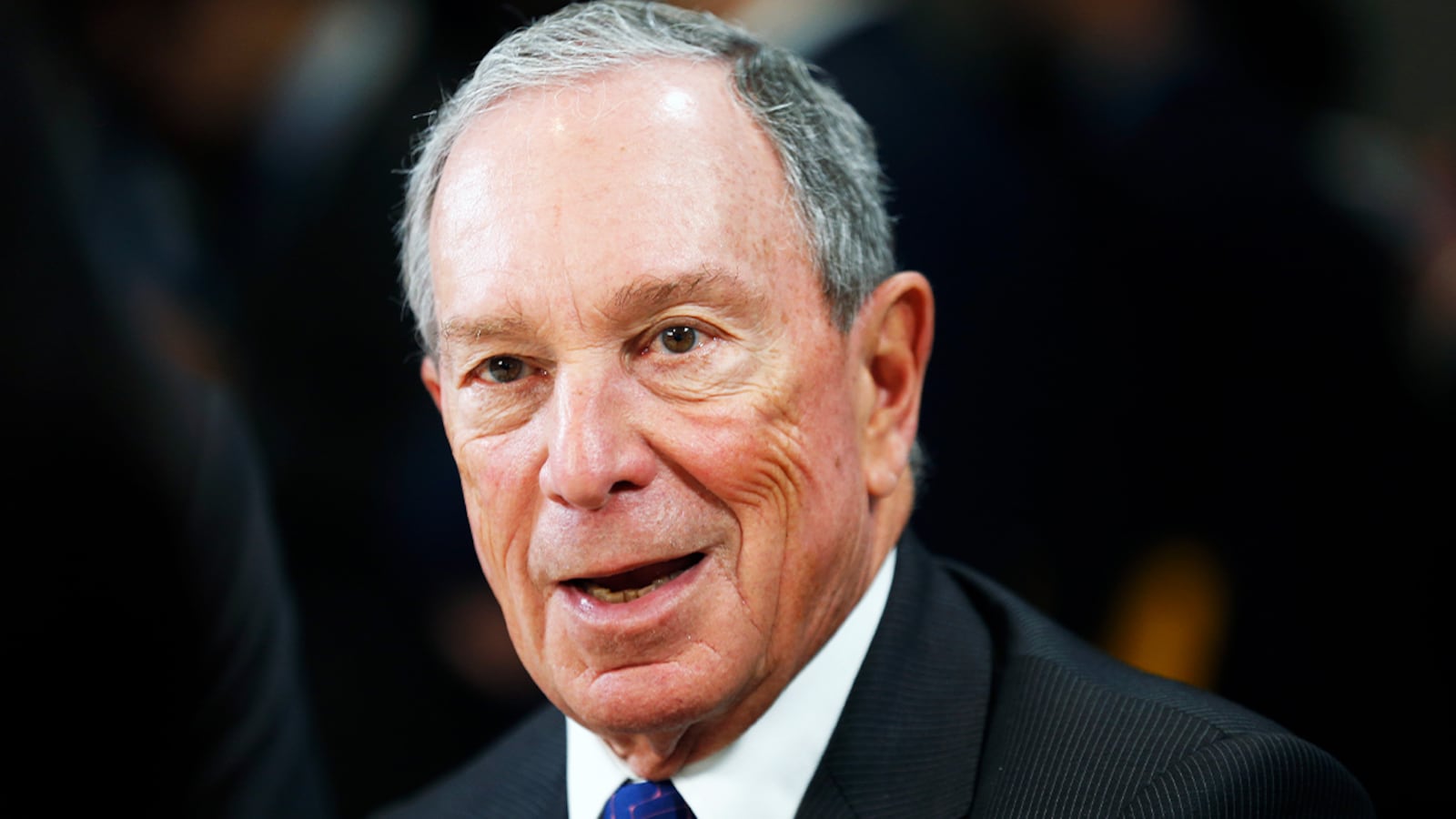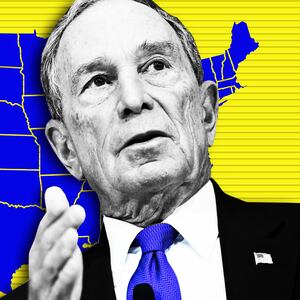Former New York City Mayor Michael Bloomberg said it himself many times: that he didn’t think the electorate was looking for a “short, Jewish, divorced billionaire.” Every four years for the last two decades, Bloomberg has assembled the best talent available to assess his chances to become president, and he has always passed in the end, fearing his bid would backfire and he would become a spoiler, electing the candidate he least preferred.
“In God we trust, all else bring data,” he would say, and the data persuaded him there was no realistic path to the White House as a third-party candidate. At age 77, it’s unlikely he’s allowed himself to be sweet-talked into a bid for the Democratic nomination by ambitious aides and consultants. This is his decision to own. But now he’s done it, and the strategy he’s decided on is a risky one.
No one has ever successfully skipped the first four states on the primary calendar. New York Mayor Rudy Giuliani tried it in 2008, launching his campaign in Florida, where he went down to a humiliating defeat. It is remembered as one of the biggest miscalculations in campaign history.
It would be a first if Bloomberg could break the stranglehold that Iowa and New Hampshire, two of the whitest states in the union, have on the nominating process in a party that is increasingly diverse, and where black and brown voters are a core constituency.
Democratic candidates are campaigning nonstop in four early states (Iowa and New Hampshire plus Nevada and South Carolina), while the real battle to win the White House will be won or lost in six battleground states, the three that gave Trump the presidency in 2016 (Michigan Wisconsin, Pennsylvania) plus Florida, Arizona, and North Carolina.
These battleground states are where Democrats should focus their efforts, Bloomberg contends. A billionaire many times over, he just spent $34 million on a television buy to introduce himself in these states and others around the country. “He could’ve just been the middle-class kid who made good, but Mike Bloomberg became the guy who did good,” says a narrator. Now he’s taking on Trump “to rebuild the country and restore faith in the dream that defines us where the wealthy will pay more in taxes, and the middle-class get their fair share.”
Can Bloomberg skip the coffees and the town halls and the kitsch of grassroot campaigning and still win the nomination? “After 2016, I’ve learned to say ‘never’ and ‘impossible’ as sparingly as possible,” says William Galston, a senior fellow at the Brookings Institution. He told the Daily Beast there is a path for Bloomberg to win the nomination, but Vice President Biden would first have to collapse, and no single alternative candidate could emerge for the party to coalesce around.
What Bloomberg is doing in Galston’s view is “offering himself up as a kind of insurance policy around the early collapse of the Biden campaign. He is saying to moderate and centrist Democrats who have concerns Biden doesn’t have what it takes—he had it once but not anymore—I still do.”
Galston says he would be surprised if Biden didn’t win South Carolina, where polls show him well ahead with strong support from the black community. “But if he lost, then we would have an entirely new campaign, a kind of free-for-all going into Super Tuesday,” when 15 states, including California, Texas, Arizona, Florida, North Carolina, and Illinois, vote on March 3. In Bloomberg’s dream scenario, voters in these states could still be searching for a candidate.
What Galston dubs “the second enabling condition” for Bloomberg’s viability is that as Biden loses, the victories are spread among the other candidates, resulting in lots of kingmakers but no king as the primaries draw to a close. For a data guy like Bloomberg assaying his last chance to win the presidency, it’s simple math. “Multiply the two probabilities to come up with a number that’s bigger than zero but not large,” says Galston.
If Bloomberg could be dropped on the debate stage in October 2020 to face Trump, maybe he could win the presidency—mano a mano, one New York billionaire versus another. But that’s not the process we have in a democracy.
“I just don’t buy that Democratic voters are ready to buy what Bloomberg is selling,” says Dave Wasserman with the non-partisan Cook Political Report. And if the voters are so divided that the fight goes to the convention in July, “the super delegates would face a revolt from the base if they endorsed a guy who voted for George W. Bush and presided over stop and frisk.”
Above all, Wasserman continues, “the elite media have a hard time understanding just how averse Democratic voters are to electing a billionaire.” Bloomberg’s favorability rating among Democrats in Iowa is 19 percent with 58 percent disapproval.
No wonder he’s not competing in Iowa, but why would Democrats in Michigan and Wisconsin, battleground states that Bloomberg is targeting, feel any differently?
“The concept of buying elections strikes most Democrats as unacceptable and atrocious,” says Wasserman. Choosing his words carefully, he says, “There are numerous large obstacles between him and the nomination. It’s not just not competing in the first four states, and not being on the debate stage at a critical time in the race. It’s his status as a billionaire, it turns off a wide swath of Democratic voters who don’t think billionaires should even exist, not to mention stop and frisk.”
Democrats appreciate Bloomberg’s investments in races in 2018, and he held his first campaign event Monday in Richmond, Virginia, where the organization he created, Every Town for Gun Safety, contributed to the Democratic wave that turned Virginia blue in a historic election earlier this month. Since leaving office in 2014 after three terms as mayor of New York City, Bloomberg has been a major promoter of Democratic causes from gun safety to combatting climate change and promoting public health.
Should his campaign for president implode, it will not be too late to re-direct his funds to protect and defend the eventual nominee, who will have earned —instead of bought—the right to stand on the stage with Trump as the Democratic standard bearer.
A question that looms: How long will he stay in? Campaigns usually end when they run out of money. That won’t happen to Bloomberg. His staying power in the race will depend on whether he reaches the 15 percent threshold to win enough delegates in those big Super Tuesday states to make his candidacy matter. If he concludes he’s nothing more than a spoiler, we’ll count on his good judgment one last time to take a pass.







